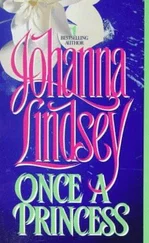John Berger - Once in Europa
Здесь есть возможность читать онлайн «John Berger - Once in Europa» весь текст электронной книги совершенно бесплатно (целиком полную версию без сокращений). В некоторых случаях можно слушать аудио, скачать через торрент в формате fb2 и присутствует краткое содержание. Год выпуска: 2014, Издательство: Bloomsbury Publishing, Жанр: Современная проза, на английском языке. Описание произведения, (предисловие) а так же отзывы посетителей доступны на портале библиотеки ЛибКат.
- Название:Once in Europa
- Автор:
- Издательство:Bloomsbury Publishing
- Жанр:
- Год:2014
- ISBN:нет данных
- Рейтинг книги:3 / 5. Голосов: 1
-
Избранное:Добавить в избранное
- Отзывы:
-
Ваша оценка:
- 60
- 1
- 2
- 3
- 4
- 5
Once in Europa: краткое содержание, описание и аннотация
Предлагаем к чтению аннотацию, описание, краткое содержание или предисловие (зависит от того, что написал сам автор книги «Once in Europa»). Если вы не нашли необходимую информацию о книге — напишите в комментариях, мы постараемся отыскать её.
Once in Europa — читать онлайн бесплатно полную книгу (весь текст) целиком
Ниже представлен текст книги, разбитый по страницам. Система сохранения места последней прочитанной страницы, позволяет с удобством читать онлайн бесплатно книгу «Once in Europa», без необходимости каждый раз заново искать на чём Вы остановились. Поставьте закладку, и сможете в любой момент перейти на страницу, на которой закончили чтение.
Интервал:
Закладка:
Grandma always had a billygoat, so the neighbours had the habit of bringing their goats to her when they were in heat. She used to charge a thousand a visit, and if the goat didn’t take they had another visit for nothing. One year, every single neighbour who had come with a goat in heat demanded a second visit. Something was wrong. Grandmother talked about it to Nestor the gravedigger who was married to her niece and bred rabbits whose skins were sold as otter. It’s simple, he said to her, he’s too cold, in your stable all alone, the he-goat must be freezing. Build him a stall where he’ll keep warm! Grandma went home and thought about Nestor’s advice and decided it was too much trouble. Instead, she’d bring the beast into the kitchen — except when the sun was out. The he-goat recovered and all the neighbours’ goats were going to have kids at Eastertime. When Grandma next saw Nestor the gravedigger, she thanked him for his advice. So you built him a stall? he said. Too much trouble, she replied, I brought him into the kitchen. Nestor looked surprised. And the smell? he asked. Grandma shrugged her shoulders. What do you expect with a he-goat, she said, he soon got used to it!
I was glad when he laughed. Then I caught sight of myself in a mirror above a sink. What was I doing here? Quickly I turned away from the mirror. He stood there, towering above me, protective like a tree. And hesitating. Perhaps under the neon light I was a surprise to him. Perhaps outside he had thought I was older. Perhaps he hadn’t seen how ridiculous my clothes were. Despite myself I glanced at the mirror again.
Your feet must be cold, he said.
I looked down at my thick, artificial-fur-lined boots and shook my head.
If we dance, they’ll warm up! And at that moment the band, whom I couldn’t see, started to play. A polka. This man, to whom I’d told the story about the goat, took my arm and delicately guided me towards the Ram’s Run. The band were installed on planks laid on scaffolding. All the other women wore high-heeled shoes. The music sounded strange, for the room, which was normally a storeroom, had no ceiling. Far up, high above, were the iron girders of the same roof which covered the topmost furnace. Most of the women were wearing low-cut dresses and some wore golden bracelets. There were also men dancing with each other. And one woman dancing alone with a gigantic feather.
What’s so surprising about music is that it comes from the outside. It feels as if it comes from the inside. The man who had clicked his heels and announced his name as Stepan Pirogov was dancing with Odile Blanc. Yet inside the music, which was inside me, Odile and Stepan were the same thing. If he had touched me whilst we were dancing like men touch women, I’d have slapped his face. Behind the band there was a heap of shovels, if he had touched me, I would have taken a shovel to him. He knew better. He didn’t interfere with what the music was doing. He tossed back his head at each beat, chin flung up, neck taut, mouth smiling. When the band stopped, he lifted his hand off my shoulder and stared at the players as if surprised that there was no more music, then he nodded and the band started up again. It looked as though he ordered the music with a nod of his head.
For a long while, I don’t know how long, before we had exchanged anything except a silly story about a goat, before anything had been decided between us, when I knew nothing of Stepan Pirogov, the two of us let the music fill us like a single cart drawn uphill by a cantering horse.
Are you thirsty? he eventually asked.
We returned to the vestibule with its neon lights, where he bought me a lemonade. This time I avoided looking in the mirror. His accent was very foreign.
Where is it you live, Odile?
In the house after the shunting line stops.
Where the cows are? My father kept a cow.
Just one?
Just one, outside Stockholm.
Were you born in Stockholm?
I don’t know where I was born.
Your mother could tell you.
I never knew my mother.
She’s dead?
No.
In the heat and the smell of sour wine and the din of the men’s laughter in the Ram’s Run, I suddenly felt a kind of pity for him. Or was it a pity for both of us? I gazed at the lemonade in the bottom of my glass. I could feel him looking down at me — like a tree at a rabbit. I raised my head. My sudden fear had gone.
I’ve been here three months, he said.
And before?
Before I was on a ship.
A sailor?
If you like.
You won’t stay here long if you’re a sailor!
I’d stay long for you, he said.
You know nothing about me!
I’ve known you since I was first conceived in the womb of a mother I never knew. He pronounced this extraordinary sentence in a strange singsong voice.
I have to go, I said.
Spend a little more of the year with me, Odile.
Is that how you talk in your language? I asked.
In my language I’d call you Dilenka.
It was different dancing with him the second time. I’m dancing with a sailor, I kept telling myself. If Mother knew I was dancing with a sailor.
I’ve never seen the sea in my life. When the dance was over, I went to fetch my coat.
I have to work tomorrow, I told him.
Can I see you on Saturday afternoon?
I may have to work, I don’t know.
I’ll be waiting for you by the footbridge, he said.
What time? I could have bitten off my tongue for saying that.
I’ll be there the whole afternoon, listening to the river till you come. He said this in the same singsong voice.
My mother was washing out a bucket in the stable and I was milking before taking the bus to Cluses, it was still dark — and she screamed at me:
You would never have dared do that, if your father was still alive!
Do what?
Go to the Ram’s Run!
There was no harm in it, Mother.
And to come back at four in the morning!
Three!
No one goes to the Ram’s Run!
They’re not beasts.
What did I do — what in God’s name did I do — to deserve a daughter like you?
You did with Papa — may he rest in peace — what most wives do, Mother.
Listen to her! my mother was screaming. She talks like that to her own mother.
She hurled the bucketful of water at me. It was so cold it took my breath away and the shock of it made me fall off the stool. Lilac calmly turned her head to see what had happened. Cows are the calmest cows in the world, was one of Stepan’s jokes. He would say it in a mournful voice.
I kept him waiting the whole afternoon by the footbridge. When at last I arrived, he didn’t complain. He stood there listening and whilst I talked, he fingered the fringe of the scarf I had round my neck. It was so cold, the sound of the river was as shrill as the train’s whistle. A train came once a fortnight to take away the molybdenum and manganese. Always at night. And since my earliest childhood the train woke me up. We walked across the lines to the big furnace shop.
Do you know each furnace has a name? he asked. The big one there is called Peter. The other one is called Tito … Why does it make you smile?
They weren’t called those names when I was young.
Now he was smiling.
There’s another called Napoleon. Why does it make you smile?
A little smile, I said.
Not so little now! he said.
Smaller than yours!
Do you know how to measure a smile?
Yes, I said.
He bent down and picked me up so my mouth was level with his, and he kissed me. On the nose.
I know so little about him, yet with the years of thinking I have learnt a great deal more from the same few facts. Perhaps there are never many facts when you first love somebody. The facts are what destiny has in store for you. His foster parents were Ukrainians and left Russia in the early twenties to settle in Sweden. One day a Russian who knew his foster mother when she was in Kiev arrived with a swaddled bundle. In it was a two-month-old baby. The couple gave the baby their family name of Pirogov. They had no children of their own. The “father” was a chairmaker and the “mother” took in washing. They had had to leave their country because in 1918 the man had joined the wrong army — the green not the red one. His “father” joined the army of a man whom Stepan called Batko Makhno. Batko, he said, meant Father. I didn’t understand much.
Читать дальшеИнтервал:
Закладка:
Похожие книги на «Once in Europa»
Представляем Вашему вниманию похожие книги на «Once in Europa» списком для выбора. Мы отобрали схожую по названию и смыслу литературу в надежде предоставить читателям больше вариантов отыскать новые, интересные, ещё непрочитанные произведения.
Обсуждение, отзывы о книге «Once in Europa» и просто собственные мнения читателей. Оставьте ваши комментарии, напишите, что Вы думаете о произведении, его смысле или главных героях. Укажите что конкретно понравилось, а что нет, и почему Вы так считаете.












